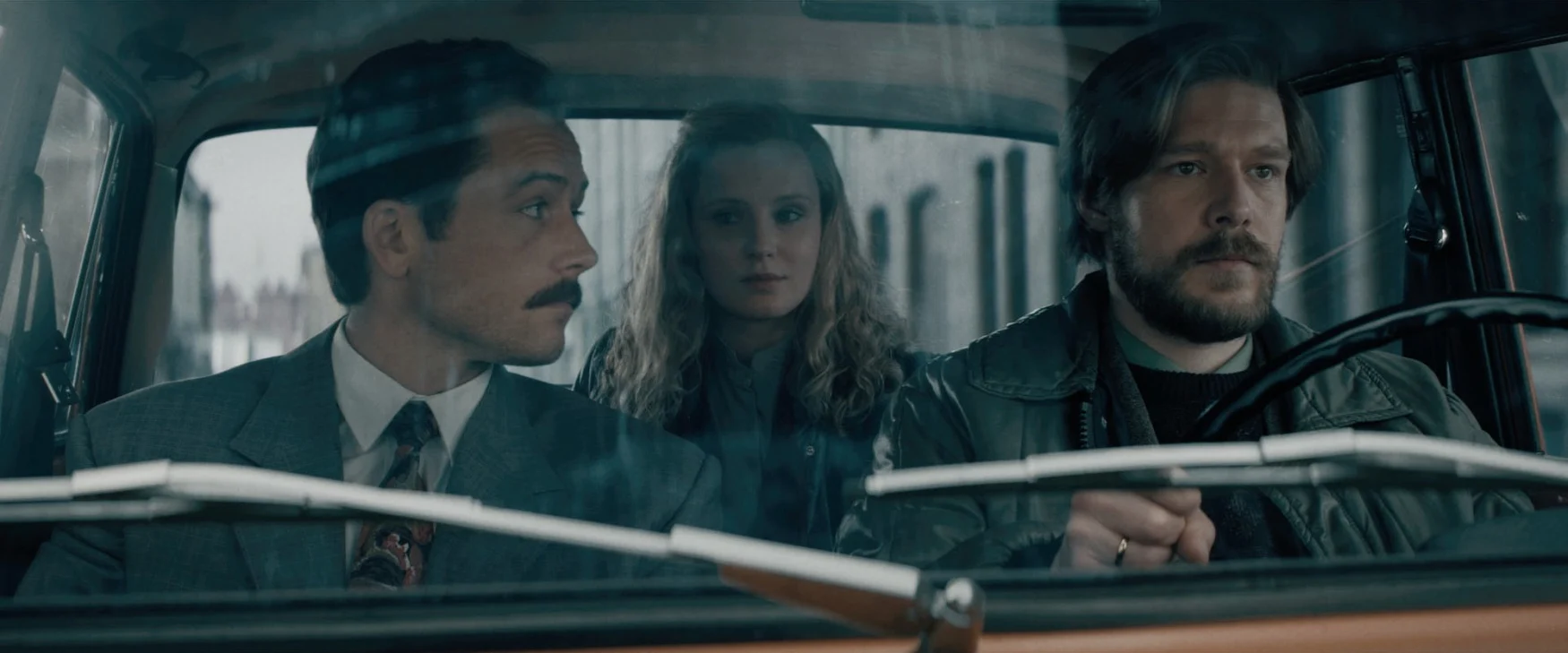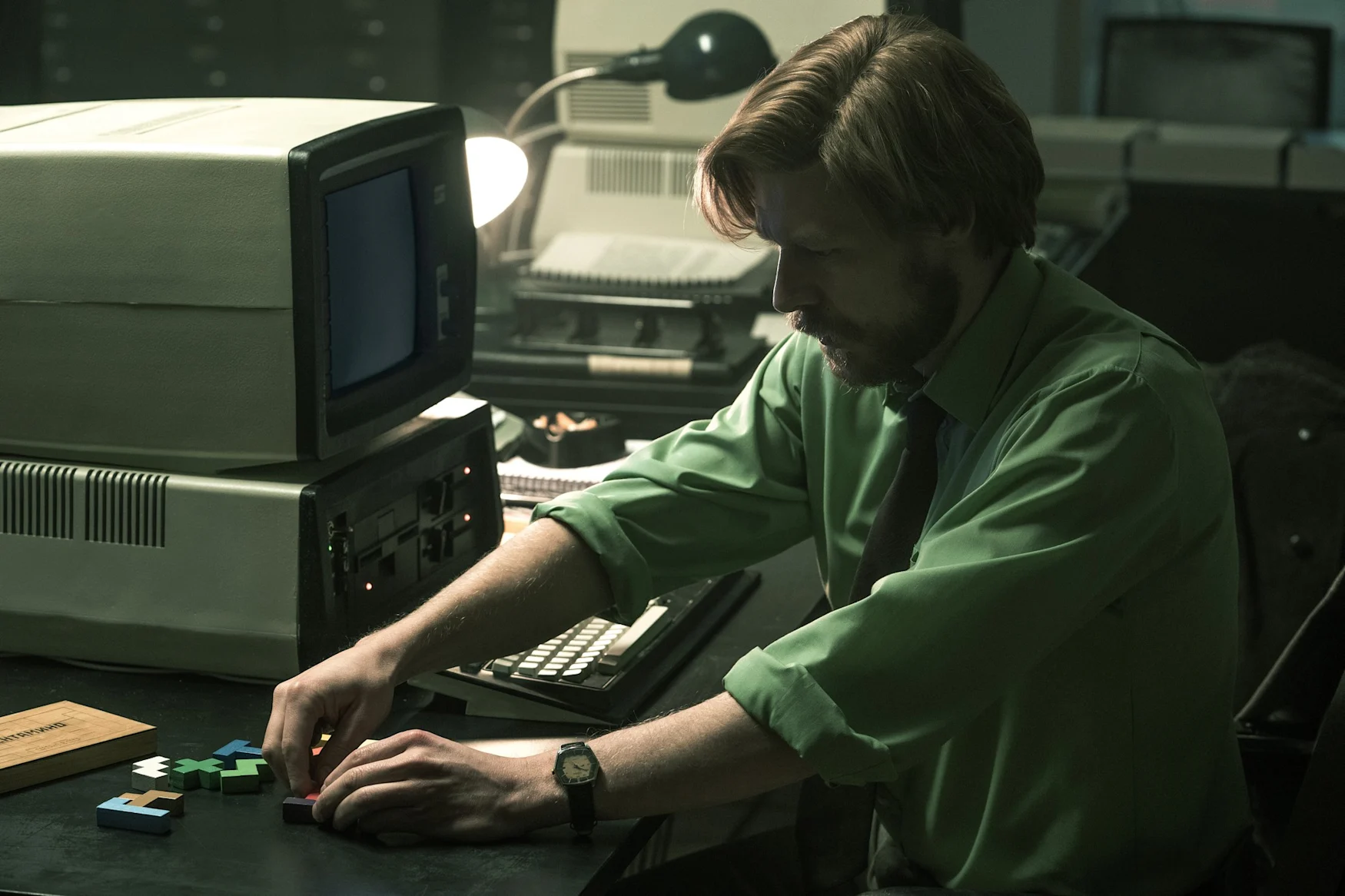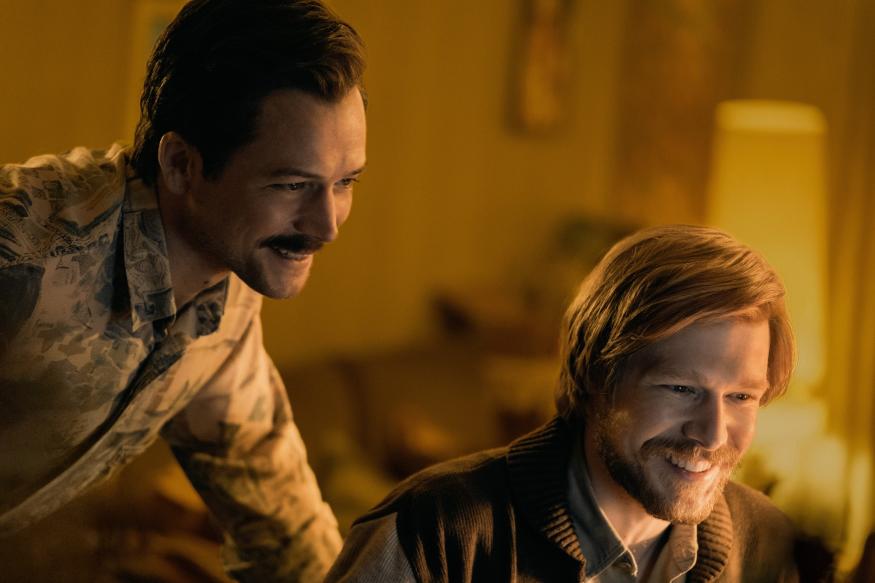No, the origins of Tetris didn’t involve a high-speed car chase, but the true story behind the game still reads like a spy novel. There’s corporate intrigue, nefarious government agencies and an envious amount of globe-trotting. But the reality wasn’t enough for the creative minds behind Apple’s film, which premieres on March 31st. Director Jon S. Baird and writer Noah Pink couldn’t help but spice up the story with hyperactive pixel art, cartoonishly evil villains and wildly discordant tonal shifts. The result is a film that may entertain general audiences – or critics who have somehow never heard of Tetris before – but will probably leave true aficionados of the game cold.
From its opening scenes, in which a young Henk Rogers (Taron Egerton) recounts the magical moment he encountered at CES, the film aims for the snappy dialog of Aaron Sorkin’s scripts for and . But it never reaches those heights. Rogers is the entrepreneur responsible for working together with Alexey Pajitnov (Nikita Efremov), the Soviet programmer who created , to bring the game to the rest of the world. He makes for a compelling main character on paper, and yet the film doesn’t delve too deeply into why he’d risk his life and business (he was the founder of Japan’s Bullet-Proof Software) for a single game.

Call that a failure of storytelling, or perhaps it’s just dramatic shorthand. Rogers is one of the first people to become truly obsessed with , and that alone defines his actions. Throughout the movie he and others experience the “Tetris effect” – hallucinating falling blocks after playing the game. That’s a practically universal response to playing for an extended period. The world quickly fades out of view while you’re focusing on those shapes, and its effect on you lingers for days.
In this film, that’s shown in the most basic way possible: A hallucinatory display of shapes right in front of someone’s eyes. But I couldn’t help but imagine how a more artful take would have looked. Think by way of Darren Aronofsky’s a movie where the lead character starts to see evidence of math in every corner of the natural world.
That being said, there’s still plenty to enjoy in Rogers’ early glimpse at a Game Boy prototype, the system that would make a global phenomenon, is treated like he’s encountering the Holy Grail. He immediately sees the potential for appealing not just to kids with NES consoles but even adults. You could easily call it the first casual video game. Ben Miles and Togo Igawa also do a fine job of embodying Nintendo royalty, former Nintendo of America chairman Howard Lincoln and the company’s third president, Hiroshi Yamauchi.
“The very important role of Tetris of that time was that it started to break down the barrier between people and computers,” Pajitnov told me in an interview. Early on, he said people were embarrassed to admit they were hooked on , and others were quick to say they don’t play games, “just Now gaming, especially those of the casual mobile variety, can reach just about anyone.
At the very least, the film understands the power of games. But it would be stronger if it embraced the reality of the story, rather than try to position itself as a cheap spy movie. British billionaires Robert and Kevin Maxwell are more James Bond villains than actual humans (admittedly, that may not be far from the truth), as they wrangle with Soviet leaders and Rogers over distribution rights to the game. Soviet intelligence officers, who repeatedly threaten Rogers and Pajitnov, are even more cartoonish. By the time we reached an obligatory car chase that, for some reason, also turns into pixelated graphics, I was almost completely checked out.

It’s doubly disappointing since the movie didn’t need to do much of this. The real-world licensing dilemma, which kicked off after the British software seller Robert Stein sold rights to the game before the Soviet Union’s approval, could be compelling enough. Prior to Rogers’ discovery of the game, Stein had sold rights to the Maxwell’s Mirrorsoft for European distribution, and to Spectrum Holobyte in the US. Rogers’ snagged Spectrum’s rights, but quickly realized that Steins’ contracts were likely illegitimate. To the movie’s credit, it also covers this licensing drama, but it’s almost always overshadowed by the more fantastical elements added by the filmmakers.
While the pieces don’t entirely fit into place (sorry), if pushes more people to explore the actual history of the game through other media, like the BBC’s documentary , Dan Ackerman’s and the graphic novel , it may have been worth it. Still, its existence also means we won’t get to see any other adaptations, like a -esque limited series, anytime soon.


